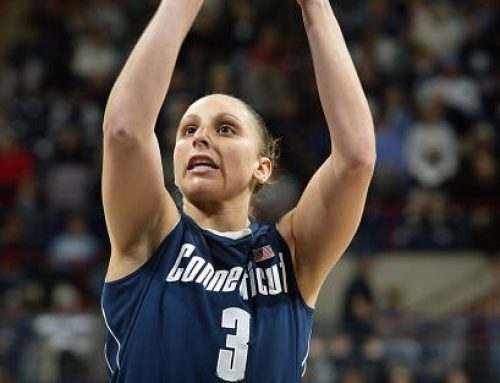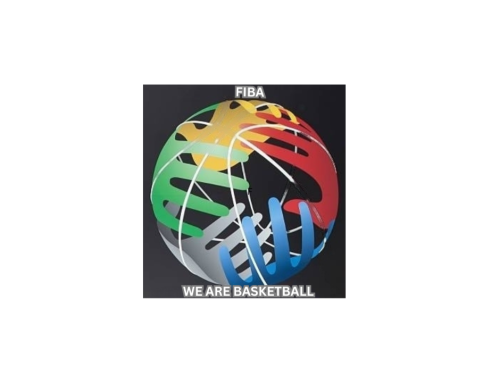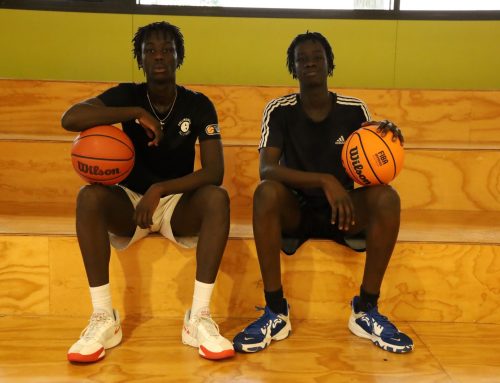
We got the leak on basketball nutrition – see what ballers up and down the country refer to for staying healthy.
BASKETBALL NUTRITION
Eating healthy and having proper nutrition is essential or perhaps, vital, for any athlete’s performance. It also helps to keep the body in top condition and gives the athlete the energy they need to perform at their best. When it comes to basketball, nutrition is equally as important as skill, strength and agility. For basketball players, the right foods and drinks can have a big impact on their game. This is because eating the right foods can help fuel their muscles for optimal performance, help them recover quickly from workouts and games, and fuel their brains for better focus and concentration.
First and foremost, basketball players focus on hydration. Staying hydrated helps players to maintain energy levels and prevents cramping. Water is the primary source of hydration, however, electrolyte rich sports drinks can be consumed to replace nutritional deficits. They should occasionally avoid taking sodas especially caffeinated ones. Basketball players should drink plenty of fluids before, during and after a game of practice.
In addition to hydration, basketball players need to pay attention to the types of food they are consuming. A balanced diet of complex carbohydrates, lean proteins, healthy fats, and other essential vitamins and minerals is important. Complex carbohydrates such as whole grains, oats, quinoa, legumes and starchy vegetables, provide the body with energy over a sustained period of time. Protein helps build muscle and aid in muscle recovery, so lean proteins such as chicken, fish, eggs, beans and tofu should be included in meals, not forgetting healthy fats from sausage such as nuts, avocados and olive oil.
Protein, according to Ralph Esposito ND, is an essential nutrient for all humans but especially so for athletes. Recent research on protein intake has shown that athletes require two times or more of the reference daily intake. It is now recommended that athletes involved in very high-volume training catabolize between 0.7 and 0.9 g of protein per pound of body weight per day. This amounts to between 115 and 150 g of protein per day for a 165lbs athlete.
Before the game a basketball player should focus on eating foods that contain carbohydrates which provides quick energy. Eating a meal or snack that is high in carbohydrates but low in fat two two hours before a game will help have more energy during the game. And during the game, they should stay hydrated by drinking plenty of fluids. Sports drinks are a great way to replace electrolytes that are lost through sweating. After a game, they should focus on eating foods that contain proteins and help the body recover.
In order to compete optimally, a basketball player requires 55% to 65% of their daily caloric intake to come from carbohydrates, 15% to 25% from protein and 15% to 20% from fats. In other words, their diet should be nearly two thirds carbohydrates, a third protein and fats, with an emphasis on healthy fats.
Here is a typical menu for a basketball player:
Day 1:
Breakfast: Oatmeal with almond milk, topped with berries and nuts, and a side of scrambled eggs
Snack: Apple slices with almond butter
Lunch: Grilled chicken breast with roasted sweet potato and green beans
Snack: Greek yogurt with sliced banana and honey
Dinner: Baked salmon with quinoa and steamed broccoli
Day 2:
Breakfast: Whole wheat toast with avocado and a side of turkey bacon
Snack: Carrot sticks with hummus
Lunch: Grilled chicken salad with mixed greens, tomatoes, cucumbers, and vinaigrette dressing
Snack: Protein smoothie with banana, almond milk, and whey protein powder
Dinner: Shrimp stir-fry with brown rice, snap peas, and bell peppers
Day 3:
Breakfast: Greek yogurt with granola, berries, and honey
Snack: Orange slices with almond butter
Lunch: Tofu and vegetable stir-fry with brown rice
Snack: Cottage cheese with sliced peaches and almonds
Dinner: Baked chicken thighs with roasted Brussels sprouts and quinoa
Day 4:
Breakfast: Whole wheat bagel with smoked salmon, cream cheese, and capers
Snack: Celery sticks with peanut butter
Lunch: Grilled chicken wrap with mixed greens, tomatoes, and avocado
Snack: Protein bar
Dinner: Turkey meatballs with whole wheat pasta and marinara sauce
Day 5:
Breakfast: Scrambled eggs with whole wheat toast and sliced tomatoes
Snack: Apple slices with almond butter
Lunch: Quinoa and black bean salad with mixed greens, avocado, and salsa
Snack: Greek yogurt with sliced peaches and honey
Dinner: Grilled salmon with roasted sweet potato and asparagus
Day 6:
Breakfast: Protein smoothie with banana, almond milk, and whey protein powder
Snack: Carrot sticks with hummus
Lunch: Baked sweet potato with black beans, salsa, and Greek yogurt
Snack: Cottage cheese with sliced apples and almonds
Dinner: Grilled chicken breast with quinoa and steamed broccoli
Day 7:
Breakfast: Whole wheat waffles with mixed berries and a side of scrambled eggs
Snack: Orange slices with almond butter
Lunch: Turkey and vegetable wrap with mixed greens and avocado
Snack: Protein bar
Dinner: Baked fish with roasted Brussels sprouts and brown rice
Remember to hydrate well throughout the day by drinking plenty of fluids, especially water and electrolyte-rich sports drinks. Also, keep in mind the recommended macronutrient ratios of 55% to 65% carbohydrates, 15% to 25% protein, and 15% to 20% fats.



